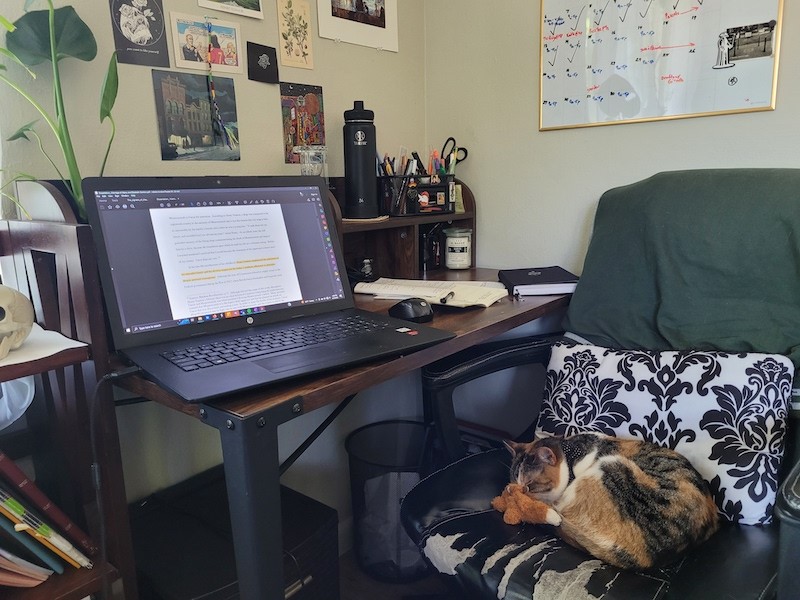The Husbands of Women’s Rights
Written by: Alyssa Eveland

While I was an undergraduate studying cultural anthropology, I had the honor of interning for the Women’s Rights National Historical Park (WORI) for multiple school breaks. Here I am, several years later now having completed both my bachelors and my masters and trying to figure out what direction I want to take my career in, back at Women’s Rights. Though this time I am fully remote, I am almost a month into my internship at the time of writing this and I have yet to actually stand on park property.

My role this summer, rather than being public facing, is to conduct research for the park on the home lives of the founders of the First women’s rights convention. So I’ve been spending my days at my desk reading dissertations, books, and articles, as well as newspapers and letters from 1820s-1860s. My focus for this project is on the husbands of the founders of that 1848 convention, specifically their relationship to activism and their wives’ activism in regards to suffrage. I’ve been able to find some really interesting information that was unknown to the employees at WORI prior to this. I thought I would give my top list (so far) of interesting facts I’ve learned about the husbands of the founders of the first women’s rights convention:
Henry Brewster Stanton, husband of Elizabeth Cady Stanton
Henry’s mom, Susana Brewster, got a divorce from Henry’s father when Henry was a teenager in 1823. In order to get a divorce in the early 1800s in Connecticut the woman had to wait until her husband was gone for 3 years before she could file with the courts. After obtaining a legal divorce from her husband her church attempted for almost a year to convince her to not go through with the divorce. In the end Susana chose excommunication before she backed down on her right to divorce.
David Wright, husband of Martha Coffin Wright
David Wright worked as a lawyer for most of his career, he and Martha were close friends with Frances and William H Seward. The Seward who served as secretary of state under Lincoln. Once, David was tapped by Seward to help him in a case he had taken on pro bono. This case ended up being one of the first, if not the first, case where someone argued innocent by reason of insanity.
Thomas McClintock (sometimes spelled M’Clintock), husband of Mary Ann McClintock
The McClintock family were some of the most ardent quakers among the founders of the first convention, they were part of the Hicksite schism and raised their children in a way that fully embodied the quaker values of equality amongst all people, regardless of race or gender. However, Thomas was not raised a quaker, in fact his father served in the Revolutionary War which is very against quaker beliefs.
I look forward to continuing this research and contributing to the parks knowledge of the history they’re teaching people. If you are interested in seeing the results of the research follow WORI on Instagram or Facebook and if you want to contribute to the knowledge and resources in the National Parks Service, consider applying for a position with ACE.
Interested in learning more about American Conservation Experience, including our programs – Conservation Crew and Emerging Professionals in Conservation? If so, click here to check out our resources, media, and to apply online.